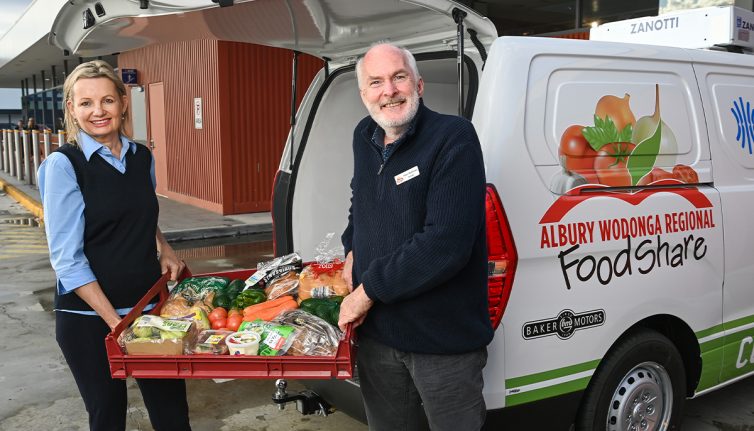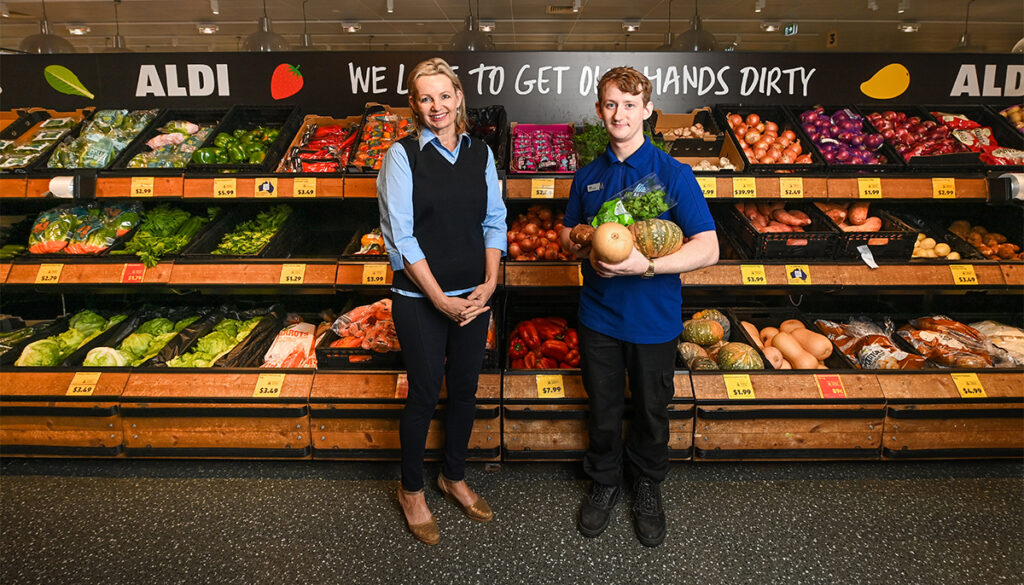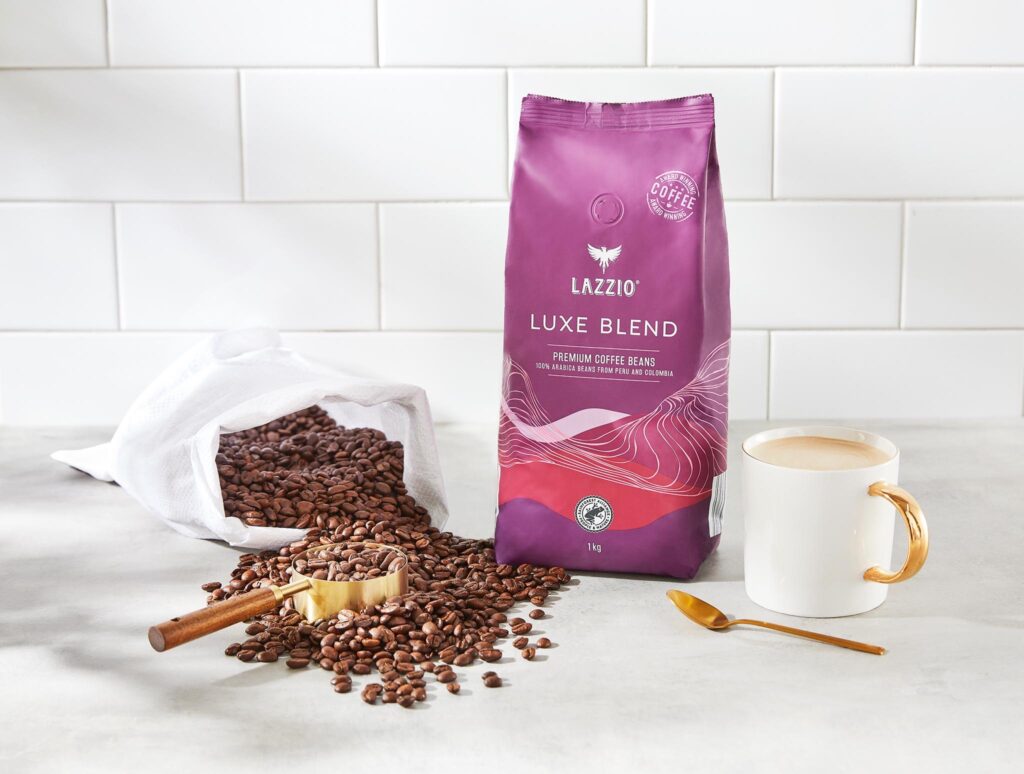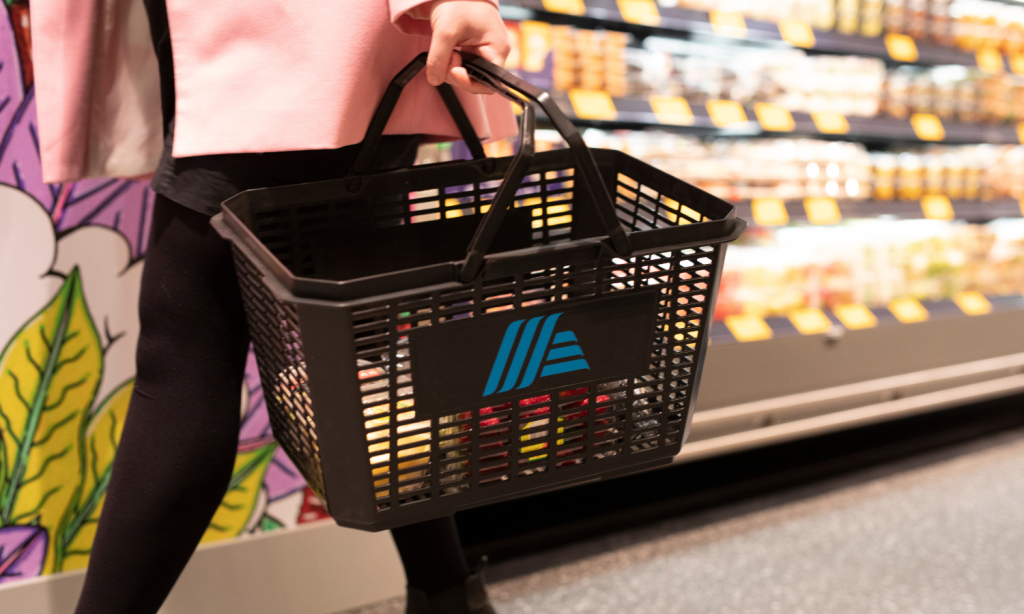ALDI Australia has further strengthened its responsibility to environmental sustainability by today announcing its commitment of zero waste to landfill by 2025.
To reach the zero waste milestone ALDI is first focusing on food, with a goal to achieve zero food waste sent to landfill by 2023. The program will see ALDI expand segregated waste collection at stores, double food donations, as well as identify closed loop recycling opportunities within the organisation and its supply chain.
The zero waste commitment puts ALDI in step with the Australian Government’s National Waste Policy Action Plan, which aims to reduce the total waste generated in Australia by 10 per cent per person and to halve the amount of organic waste sent to landfill by 2030. Currently, Australia wastes more than 7.3 million tonnes of food every year costing our economy over $20 billion annually.
“ALDI Australia’s commitment to reducing waste and improving sustainable practices will hopefully have an immense flow-on effect across its supply chain, and through to consumers,” said Minister for the Environment, Sussan Ley.
“Significant commitments like ALDI’s ‘zero waste to landfill’ show that Australia’s national waste targets are attainable if business and shoppers get behind them. With innovative solutions and practical measures we really can work to a future with less waste,” added Ms Ley.
“Every present and future action taken to achieve our zero-waste commitment has been carefully considered to ensure the solution is both viable and impactful. Our commitment will see the business reduce the amount of waste created and reuse or recycle materials to cease unnecessary waste from being sent to landfill. It is our intention that collectively these actions will make a difference”, said Daniel Baker, Corporate Responsibility Director, ALDI Australia.
ALDI’s food rescue program will expand to reuse food for animals, once the food is deemed not suitable for human consumption. ALDI stores around the country are already linked to one or more food rescue charities and in 2020 alone, ALDI donated over 10 million meals and more than 66,000 kilograms of non-food items to charity partners.
ALDI has also launched a new range called Market Buy, which will feature seasonal fruits and vegetables that have minor imperfections. The Market Buy range empowers farmers to sell more of their crops and avoid edible produce from going to waste.
ALDI will also work to investigate closed-loop opportunities with its business partners, including sending broken pallets to be chipped into garden mulch and then sold as Special Buys to our customers. The supermarket is also rolling out new uniforms for their store employees this year, with the old garments sent to a textile site to be recycled into apparel and furnishings.
“It is admirable to see ALDI Australia take conscious measures to double the amount of surplus food donated to food rescue partners such as Foodbank. ALDI has been a long term and reliable partner to Foodbank over the last 11 years and their latest commitment to zero waste will allow the growing number of Australians facing food insecurity to have even greater access to food”, said Brianna Casey, CEO, Foodbank Australia.
ALDI is trialing how customers can reduce their waste footprint through in-store recycling services in which common materials, including coffee capsules and soft plastics, can be recycled. This is in addition to ALDI’s battery recycling service, which has been available at every ALDI store since 2013.

Minister for the Environment, Hon Sussan Ley and Albury Wodonga Regional FoodShare Manager, Peter Matthews.
To access images from today’s announcement, please click here.





